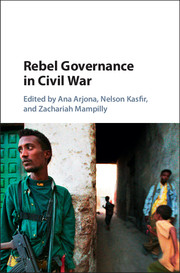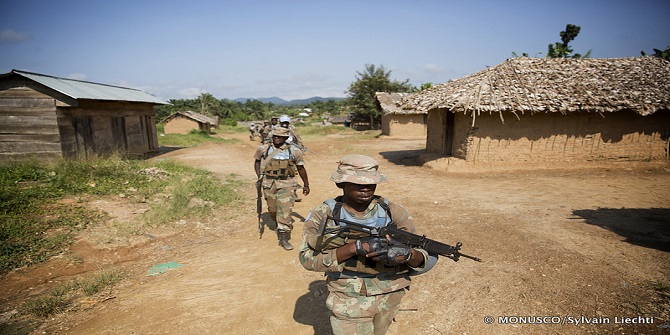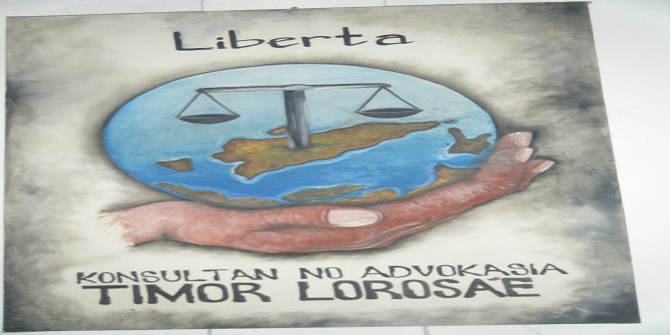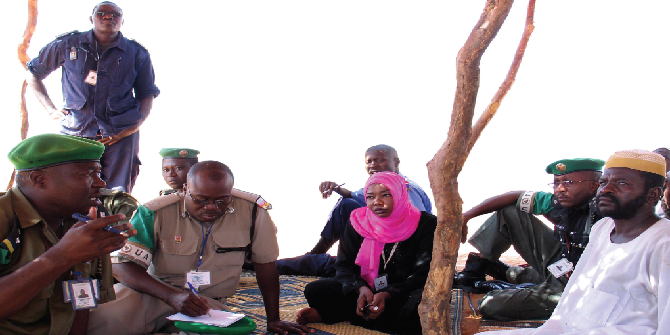 In the newly published edited volume Rebel Governance in Civil Wars (Cambridge University Press, 2015), JSRP researcher Kasper Hoffmann contributes a chapter about Mai Mai rebels’ governance of civilians in eastern Congo. In the chapter, ‘Myths Set in Motion: The Moral Economy of Mai-Mai Governance’, he argues that neither greed nor ideology alone can explain why some rebel groups choose to govern civilians during civil wars. Rather, drawing on research among the Mai Mai of eastern Congo, he shows that both morality and material interests shape rebel governance of civilians. In particular he shows that rebel leaders adopted beliefs they shared with civilians to legitimize their claims to rule. Such beliefs emerged from incongruous sources. Principles rooted in an old cosmology combined with much newer ones derived from both Christianity and nationalism. This leads Hoffmann to the surprising conclusion that rebels who seek to overturn the existing political order actually often incorporate its values, beliefs, representations, and practices into their governance of civilians. This implies that they govern through some of the myths underpinning that order. Many of these operate on an unreflective level among both rebels and local residents. Deploying these enables rebels to cultivate legitimacy among civilians whose support they solicit. But the novelty of rule by rebels is that it recasts existing values and beliefs into new political narratives that shape rebel governance profoundly. General Padiri’s Mai Mai militia group from South Kivu in eastern Congo produced a mythical narrative, forged around divine authority and the bipolar relation between autochthony and foreignness. This syncretic mythical narrative resonated deeply within the local society. It endowed Padiri with charismatic authority and enabled a highly centralized, authoritarian, and coercive form of rebel governance.
In the newly published edited volume Rebel Governance in Civil Wars (Cambridge University Press, 2015), JSRP researcher Kasper Hoffmann contributes a chapter about Mai Mai rebels’ governance of civilians in eastern Congo. In the chapter, ‘Myths Set in Motion: The Moral Economy of Mai-Mai Governance’, he argues that neither greed nor ideology alone can explain why some rebel groups choose to govern civilians during civil wars. Rather, drawing on research among the Mai Mai of eastern Congo, he shows that both morality and material interests shape rebel governance of civilians. In particular he shows that rebel leaders adopted beliefs they shared with civilians to legitimize their claims to rule. Such beliefs emerged from incongruous sources. Principles rooted in an old cosmology combined with much newer ones derived from both Christianity and nationalism. This leads Hoffmann to the surprising conclusion that rebels who seek to overturn the existing political order actually often incorporate its values, beliefs, representations, and practices into their governance of civilians. This implies that they govern through some of the myths underpinning that order. Many of these operate on an unreflective level among both rebels and local residents. Deploying these enables rebels to cultivate legitimacy among civilians whose support they solicit. But the novelty of rule by rebels is that it recasts existing values and beliefs into new political narratives that shape rebel governance profoundly. General Padiri’s Mai Mai militia group from South Kivu in eastern Congo produced a mythical narrative, forged around divine authority and the bipolar relation between autochthony and foreignness. This syncretic mythical narrative resonated deeply within the local society. It endowed Padiri with charismatic authority and enabled a highly centralized, authoritarian, and coercive form of rebel governance.
Photo credit: babasteve / Foter.com / CC BY-NC
Note: articles present the views of their authors, and not necessarily the position of the Justice and Security Research Programme, nor of the London School of Economics and Political Science.





